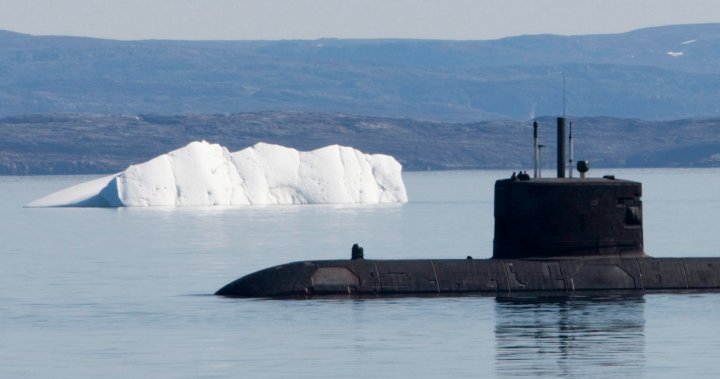Canada’s newly unveiled Arctic foreign policy signifies a substantial shift in the nation’s approach to northern affairs, driven by escalating geopolitical tensions, amplified foreign interest in the region, and the undeniable impacts of climate change. The policy prioritizes enhancing Canada’s presence and influence in the Arctic, bolstering security measures, and fostering deeper collaboration with key allies and Indigenous communities. This comprehensive strategy aims to protect Canadian sovereignty, promote sustainable development, and address the evolving challenges and opportunities presented by the changing Arctic landscape.
At the heart of this policy is a recognition of the growing strategic importance of the Arctic. The region’s resource wealth, potential for new shipping routes, and its unique vulnerability to climate change have attracted increasing attention from global powers, including Russia and China. Russia’s actions in Ukraine have further heightened concerns, underscoring the potential for spillover effects into the Arctic and the need for Canada to strengthen its security posture. China’s declared ambition to become a “polar great power” adds another layer of complexity, highlighting the intensifying competition in the region. In response, Canada is taking proactive steps to assert its presence and safeguard its interests.
The policy outlines a multi-faceted approach to achieving its objectives. Key initiatives include the appointment of a dedicated Arctic ambassador, the establishment of new diplomatic missions in Alaska and Greenland, and increased engagement with the United States and Nordic partners. These efforts aim to strengthen diplomatic ties, enhance information sharing, and foster closer cooperation on security and other critical issues. The policy also emphasizes the importance of engaging with Indigenous communities, recognizing their unique knowledge and perspectives on Arctic affairs.
Beyond diplomatic initiatives, the policy addresses the need for enhanced security measures in the Arctic. While it doesn’t include immediate new defense spending, it aligns with recent investments outlined in the defense policy update and commitments to NORAD modernization, totaling tens of billions of dollars over the next decade. These investments underscore the government’s recognition of the growing security challenges in the region and its commitment to equipping the Canadian Armed Forces with the necessary capabilities to operate effectively in the Arctic environment. Further strengthening of research security is emphasized, aiming to protect sensitive information and safeguard against potential misuse by foreign actors. The policy also prioritizes improving information sharing with local and Indigenous governments on developing security threats, including foreign interference, recognizing the crucial role of these partners in maintaining regional security.
The policy’s emphasis on collaboration extends beyond traditional security partners. It calls for an “Arctic security dialogue” with like-minded Arctic states, including Nordic nations and the U.S., fostering a collective approach to addressing regional challenges. The policy also recognizes the importance of engaging with other international partners, such as the United Kingdom, the European Union, and Indo-Pacific nations like Japan and South Korea, acknowledging the global implications of Arctic developments. Furthermore, the policy commits to resolving outstanding boundary disputes with Denmark and the U.S., promoting stability and predictability in the region.
Finally, the policy recognizes the interconnectedness of various challenges facing the Arctic, including climate change, security concerns, economic development, and the rights of Indigenous peoples. It seeks to address these issues holistically, promoting sustainable development while protecting the environment and respecting the traditional ways of life of northern communities. The policy’s commitment to regular briefings with territorial, provincial, and Indigenous governments on emerging security threats underscores the importance of collaboration and information sharing in addressing these complex challenges. The revival of the Arctic ambassador position, previously held by Gov.-Gen. Mary Simon, symbolizes the government’s renewed focus on Arctic affairs and its commitment to strong leadership in the region. This comprehensive strategy represents a crucial step forward in ensuring Canada’s long-term interests in the Arctic are protected and advanced in a rapidly changing world. The increased focus on Arctic issues in Canada’s global engagements signals a recognition of the region’s growing geopolitical significance. The commitment to viewing Arctic research through a national security lens highlights the importance of protecting sensitive information and guarding against potential misuse by foreign actors. The policy’s emphasis on Indigenous perspectives and engagement with northern communities reflects a commitment to incorporating traditional knowledge and local expertise in decision-making processes related to Arctic affairs.

